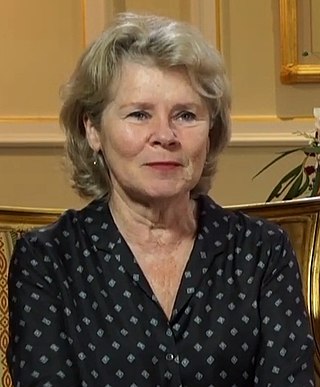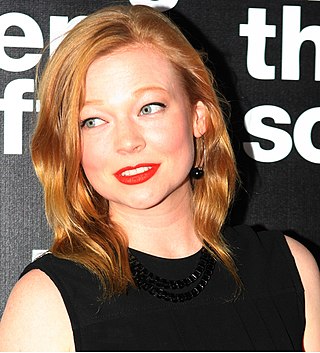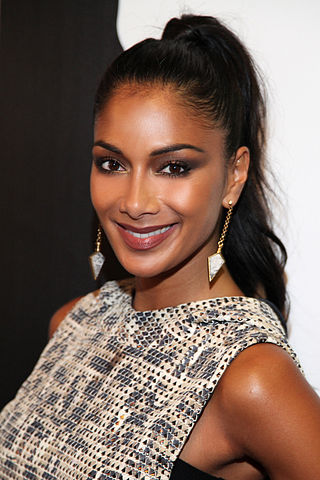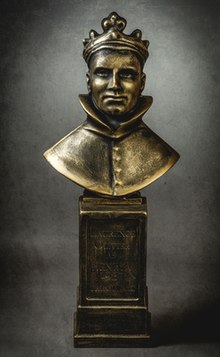
Dame Judith Olivia Dench is an English actress. Widely considered one of Britain's greatest actors, she is noted for her versatile work in various films and television programmes encompassing several genres, as well as for her numerous roles on the stage. Dench has garnered various accolades throughout a career spanning seven decades, including an Academy Award, a Tony Award, two Golden Globe Awards, four British Academy Television Awards, six British Academy Film Awards, and seven Olivier Awards.

Dame Sheila Cameron Hancock is an English actress, singer, and author. She has performed in theatre - plays and musicals in London, and her Broadway debut in Entertaining Mr Sloane (1966) earned her a Tony Award nomination for Best Lead Actress in Play.

Michael Ashley Ball is an English singer, presenter and actor. In 1985, he made his West End debut as Marius Pontmercy in the original production of Les Misérables. In 1989, he reached number two in the UK Singles Chart with "Love Changes Everything", from the musical Aspects of Love, where he played Alex Dillingham. He played the role in the West End and on Broadway. His album Coming Home To You reached number one in the UK making it his 4th number one album to date. On 24 April 2020, Ball and Captain Tom Moore entered the UK Singles Chart at number one with a cover of "You'll Never Walk Alone", with combined chart sales of 82,000 making it the fastest-selling single of 2020.

Imelda Mary Philomena Bernadette Staunton is an English actress and singer. After training at the Royal Academy of Dramatic Art, Staunton began her career in repertory theatre in 1976 and appeared in various theatre productions in the United Kingdom.
The Evening Standard Theatre Awards, established in 1955, are the oldest theatrical awards ceremony in the United Kingdom. They are presented annually for outstanding achievements in London Theatre, and are organised by the Evening Standard newspaper. They are the West End's equivalent to Broadway's Drama Desk Awards.

The Tony Award for Best Performance by a Leading Actor in a Musical is awarded to the actor who was voted as the best actor in a musical play, whether a new production or a revival. The award has been given since 1948, but the nominees who did not win have only been publicly announced since 1956.
Tracie Bennett is an English singer and stage and television actress. She trained at the Italia Conti Academy of Theatre Arts in Clapham, London. She played the role of Sharon Gaskell in Coronation Street from 1982 to 1984, returning to the role in 1999 and again in 2021.

Julia Kathleen Nancy McKenzie is an English actress, singer, presenter, and theatre director. She has premièred leading roles written by both Alan Ayckbourn and Stephen Sondheim. On television, she is known for her BAFTA Award nominated role as Hester Fields in the sitcom Fresh Fields (1984–1986) and its sequel French Fields (1989–1991), and as Miss Marple in Agatha Christie's Marple (2009–2013).
Janie Dee is a British actress. She won the Olivier Award for Best Actress, Evening Standard Award and Critics' Circle Theatre Award for Best Actress in a Play, and in New York the Obie and Theatre World Award for Best Newcomer, for her performance as Jacie Triplethree in Alan Ayckbourn's Comic Potential.

Mrs. Lovett is a fictional character appearing in many adaptations of the story Sweeney Todd. Her first name is most commonly referred to as Nellie, although she has also been referred to as Amelia, Margery, Maggie, Sarah, Shirley, Wilhelmina, Mary and Claudetta. A baker from London, Mrs. Lovett is an accomplice and business partner of Sweeney Todd, a barber and serial killer from Fleet Street. She makes meat pies from Todd’s victims.

The Laurence Olivier Award for Best Actress in a Play is an annual award presented by the Society of London Theatre in recognition of achievements in commercial London theatre. The awards were established as the Society of West End Theatre Awards in 1976, and renamed in 1984 in honour of English actor and director Laurence Olivier.

The Laurence Olivier Award for Best Actress in a Musical is an annual award presented by the Society of London Theatre in recognition of achievements in commercial London theatre. The awards were established as the Society of West End Theatre Awards in 1976, and renamed in 1984 in honour of English actor and director Laurence Olivier.
The Laurence Olivier Award for Best Musical Revival is an annual award presented by the Society of London Theatre in recognition of achievements in commercial London theatre. The awards were established as the Society of West End Theatre Awards in 1976, and renamed in 1984 in honour of English actor and director Laurence Olivier.
The Laurence Olivier Award for Best Actor in a Musical is an annual award presented by the Society of London Theatre in recognition of achievements in commercial London theatre. The awards were established as the Society of West End Theatre Awards in 1976, and renamed in 1984 in honour of English actor and director Laurence Olivier.
The WhatsOnStage Awards, formerly known as the Theatregoers' Choice Awards, are organised by the theatre website WhatsOnStage.com. The awards recognise performers and productions of British theatre with an emphasis on London's West End theatre.

Robert Hugh Carvel is a British film and theatre actor. He has twice won a Laurence Olivier Award: for Best Actor in a Leading Role in a Musical for his role as Miss Trunchbull in Matilda the Musical, and for Best Actor in a Supporting Role for his performance as Rupert Murdoch in Ink. For the latter role, he won the Tony Award for Best Actor in a Featured Role in a Play.
The 2013 Laurence Olivier Awards were held on Sunday 28 April 2013 at the Royal Opera House, London. The awards were sponsored by MasterCard for the third consecutive year and presented by Hugh Bonneville and Sheridan Smith, with music from the BBC Concert Orchestra. Live coverage of the awards was provided by BBC Radio 2, commentated by Ken Bruce and for the first time in over a decade, the awards were televised, with a highlights programme on ITV.
The 2018 Laurence Olivier Awards was held on 8 April 2018 at the Royal Albert Hall, London. The ceremony was hosted by comedian and actress Catherine Tate.
The Triple Crown or the Grand Slam are terms used in the entertainment industry to describe individuals who have won the three highest accolades recognised in British film, television, and theatre: a British Academy Film Award, a British Academy Television Award, and a Laurence Olivier Award respectively.














